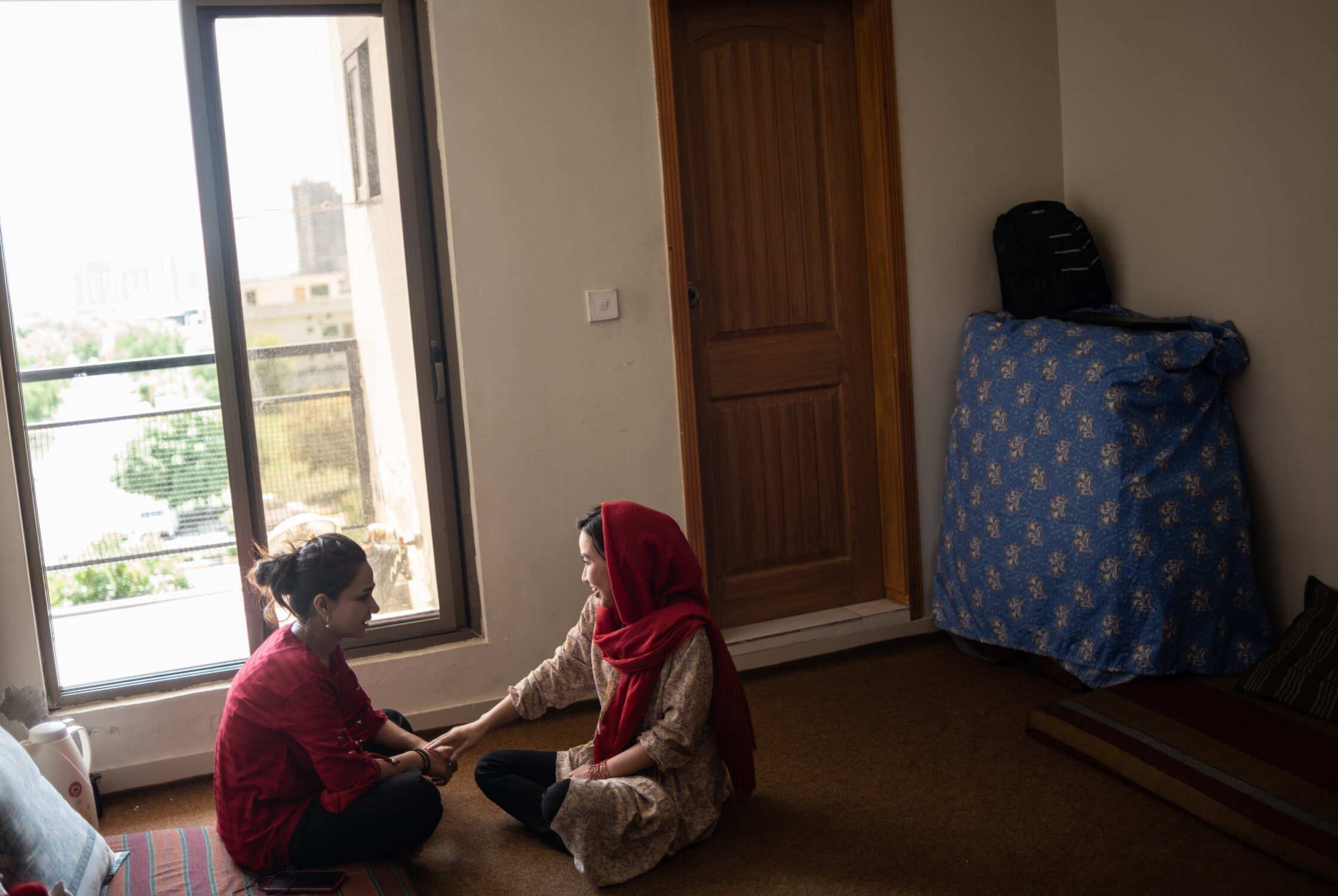The Hill: The U.S. Must Honor its Promises to Afghanistan’s Women Journalists

This piece was originally published in The Hill.
Almost two years after American soldiers swiftly packed and left the nation’s longest-running war in Afghanistan, the Taliban are still targeting tens of thousands of Afghans left behind. Among them are Afghan women journalists.
The United States recognized the risks Afghanistan’s female journalists would face under a Taliban takeover. In early August 2021, the Biden administration established a resettlement program for Afghanistan citizens at risk, including Afghan women journalists who worked for U.S. media organizations. Classified as Priority 2 or P-2 cases, the program allows U.S.-based media organizations to refer their Afghan employees for relocation to the United States.
The program was an acknowledgment of the debt America owes these women. Since then, hundreds of journalists have fled Afghanistan for Pakistan. There, they struggle to survive with little or no financial support, no jobs, and no legal status.
Many are waiting for the U.S. government to review and make decisions on their P-2 cases. But two years on, this process has yet to even begin.
Pakistan and the United States are pointing fingers at each other. The Pakistani government says that if they allow the United States to set up a case processing operation in Pakistan, more Afghans hoping to be resettled will enter their territory. Conversely, the U.S. government claims that they must process resettlement cases within Pakistan — and because the Pakistanis will not allow it — their hands are tied.
But there are alternatives. The United States can transfer these families to other transit countries where U.S. government agencies can vet them before they are approved to travel further. These agencies can also complete some of the processing virtually. They can process small numbers of cases from within the American embassy in Islamabad.
It has never been particularly safe to be an Afghan women journalist. Even before the Taliban assumed power, their fighters targeted these women. In 2021, Taliban fighters shot and killed three young women journalists in Jalalabad and used explosives to kill two others in 2020. Now, the Taliban have denied women journalists the ability to work freely, and they continue to harass and intimidate female journalists. In March 2022, 8 in 10 Afghan women journalists reported physical abuse and threats from the Taliban.
These women cannot safely return to Afghanistan. Yet, living in Pakistan under current conditions is unsustainable. Afghans who arrived in Pakistan after 2017 have no protection — the Pakistani government refuses to register them or consider them refugees. Many Afghan women journalists arrived on short-term visas that have expired, and they cannot afford to renew them. Without visas and with no way to get refugee status, humanitarian organizations cannot assist them, and they are at risk of deportation.
Pakistan also does not permit them to work formally, making it difficult to survive. Most women journalists have been in Pakistan for two years with no source of income and waning savings, if any. Some were the primary breadwinners in their families in Afghanistan. In Pakistan, they cannot afford basic necessities like rent and food.
Meanwhile, they are still at risk in Pakistan. The Haqqani Network — a terrorist group with close ties to the Taliban — is based in northern Pakistan. According to conversations with dozens of Afghan women journalists in Pakistan, members of the network follow and intimidate them. Additionally, these journalists said that representatives of the Taliban embassy in Islamabad have approached them, warning them not to publish anything against the Taliban and not to interact with foreigners. The Taliban have threatened severe punishments for those who defy these directives.
The net result is conditions that take a heavy toll on the mental well-being of Afghan women journalists in Pakistan. Having fled their country, they now live in fear — often confined to their apartments. The loss of their careers has affected their confidence and self-worth. Some have even told each other they contemplate suicide because their futures seem so bleak.
The list of hardships faced by Afghan women journalists in Pakistan is long. The Pakistani government needs to register these Afghans and recognize them for what they are, refugees who have fled the Taliban and who cannot safely return home. Pakistan needs to allow these women to work and their children to go to school and assure them that they will not be deported.
But for those with P-2 resettlement cases, there is a path to an even more secure future. The U.S. government must work with their Pakistani counterparts to get these women to the United States: a country that prides itself on valuing a free press.
It is time to support brave Afghan women journalists who have nowhere else to turn.
Featured Image: Afghan refugee Muzhgan (R), 22, who fled Afghanistan after the fall of Kabul in 2021, talks with her roommate at a guesthouse run by the Future Brilliance charity on April 29, 2023 in Islamabad, Pakistan. Before fleeing Afghanistan, Muzhgan worked on social and women’s rights projects. Photo by Rebecca Conway/Getty Images.